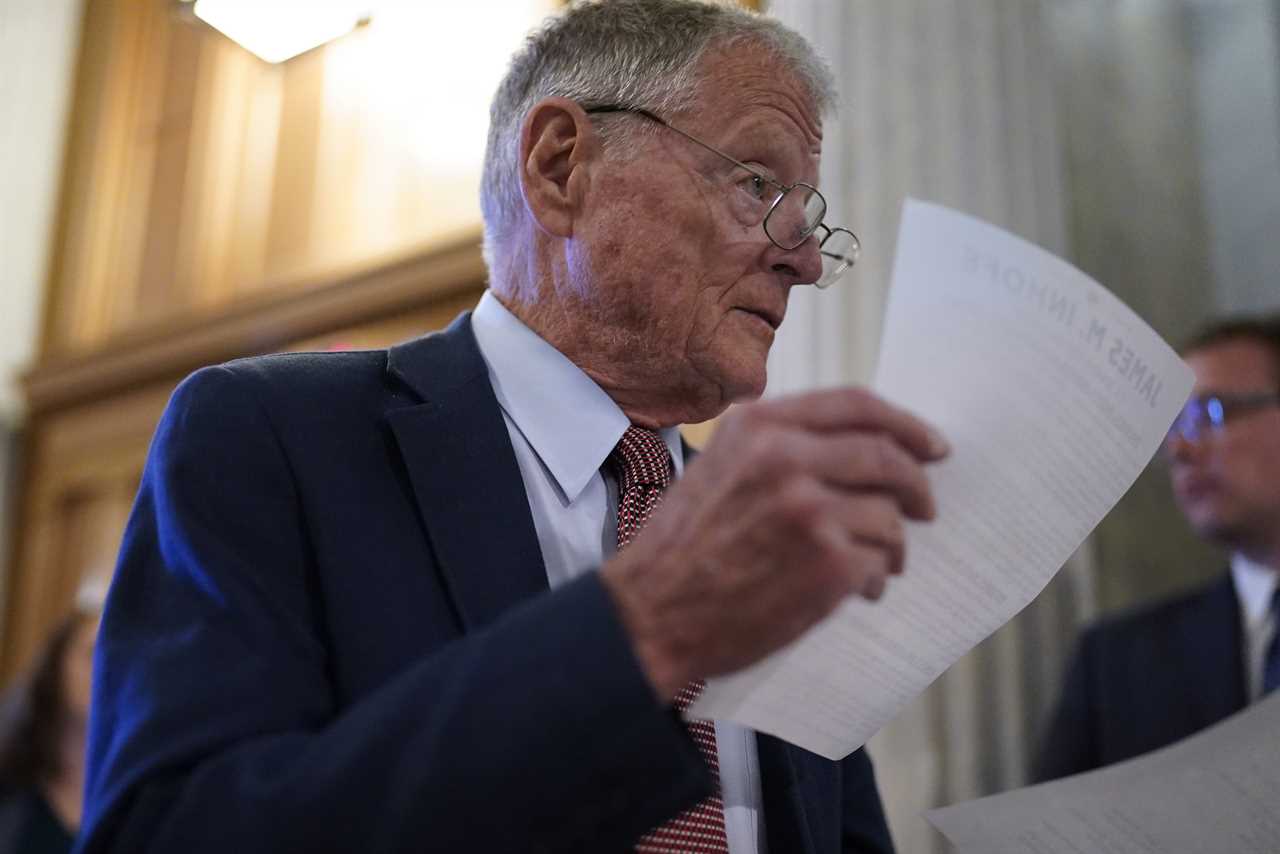
The Senate Armed Services Committee has endorsed a $45 billion increase to President Joe Biden's military spending plans in its annual defense policy bill, blowing past the administration's Pentagon budget for a second straight year.
The rebuke of Biden's budget plans, which occurred during the panel's closed-door markup of the National Defense Authorization Act this week, comes after lawmakers added roughly $30 billion to the White House's previous defense spending proposal.
This week's boost brings the bill's topline budget figure to $847 billion, according to Armed Services Chair Jack Reed (D-R.I.). The goal, he said, is to counteract runaway inflation, aid Ukraine, replenish weapons sent into the fight against Russia, and fund military priorities left out of the Pentagon budget request.
The committee approved the defense policy bill Thursday morning, its second day of deliberations.
Senate Armed Services' increase is the highest bid so far for military spending for the coming fiscal year. The House is expected to make its own push to increase Pentagon spending. Still, the NDAA only authorizes spending and would need to be backed up by funding legislation produced by the House and Senate Appropriations panels.
Biden sought $813 billion for national defense in his fiscal 2023 budget — including $773 billion for the Pentagon. Roughly $10 billion of the $813 billion falls outside of Armed Services' jurisdiction.
But Republicans have been pushing for a substantial increase, arguing for a 3 to 5 percent increase from the current year's level above inflation. The current year's enacted level for the NDAA is $768 billion.
Reed told reporters Thursday that historic inflation was "the first consideration" in boosting the topline.
The committee chair had been negotiating a bipartisan topline deal with ranking Republican Jim Inhofe of Oklahoma ahead of the markup. Reed acknowledged that the bill's topline would likely have to be higher than Biden's request to account for high inflation, but that other needs could push that even higher.
"It's everything I hoped for," Inhofe said of the topline increase.
The House Armed Services Committee, meanwhile, this week sided with Biden's budget in its version of the bill, authorizing $773 billion for the Pentagon and $803 total for national defense programs that are in the panel's jurisdiction. Although the panel's chair, Rep. Adam Smith (D-Wash.), said this week that he expects that number will grow.
Bigger topline: This marks the second budget of the Biden administration, and the second year in a row that Senate Democrats have joined Republicans to add billions to the request. Despite a progressive wing that has vowed to cut defense spending, the 50-50 split in the Senate means that the majority can't pass the NDAA without Republican help, which gives the GOP leverage to force higher budgets.
Pay raise: Despite the topline boost, senators stuck with the administration's request for a 4.6 percent pay increase next year for military personnel.
Stockpiling: The bill authorizes $1 billion for the National Defense Stockpile to shore up military access to critical materials.
Regional defense programs: Reed said the legislation "fully invests" in the Pentagon's Pacific Deterrence Initiative, aimed at building up the U.S. presence in the Indo-Pacific to deter China, as well as the European Deterrence Initiative and the Ukraine Security Assistance Initiative.
Honoring Inhofe: The bill is named for Inhofe, who is resigning from the Senate at the end of the 117th Congress. Inhofe has served as both chair and ranking member of the panel.
----------------------------------------
By: Connor O’Brien
Title: Senators tack $45B onto Biden's defense budget
Sourced From: www.politico.com/news/2022/06/16/senators-tack-45b-onto-bidens-defense-budget-00040154
Published Date: Thu, 16 Jun 2022 12:01:00 EST
Did you miss our previous article...
https://consumernewsnetwork.com/politics-us/black-entrepreneurs-are-failing-in-detroits-weed-market-is-the-city-to-blame






